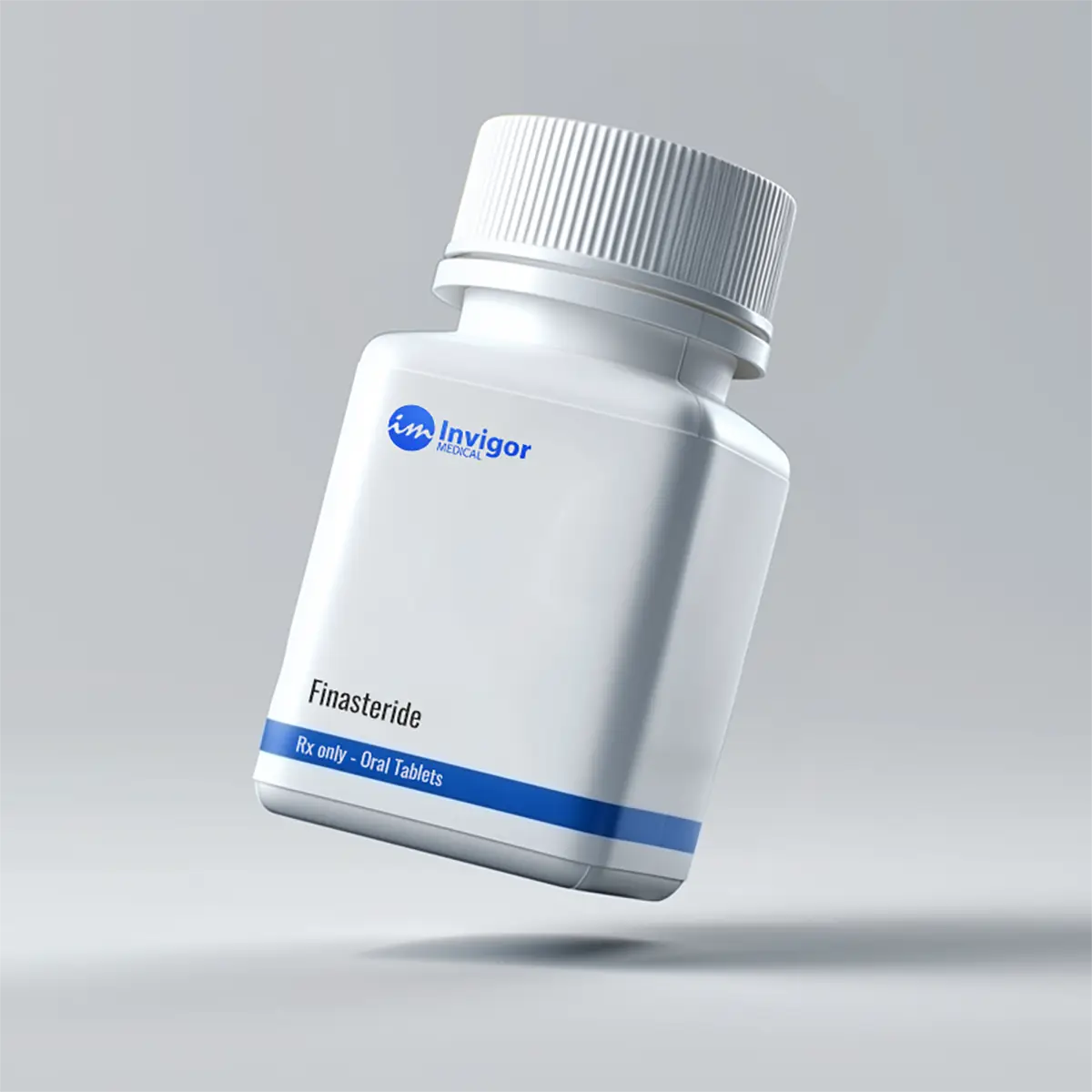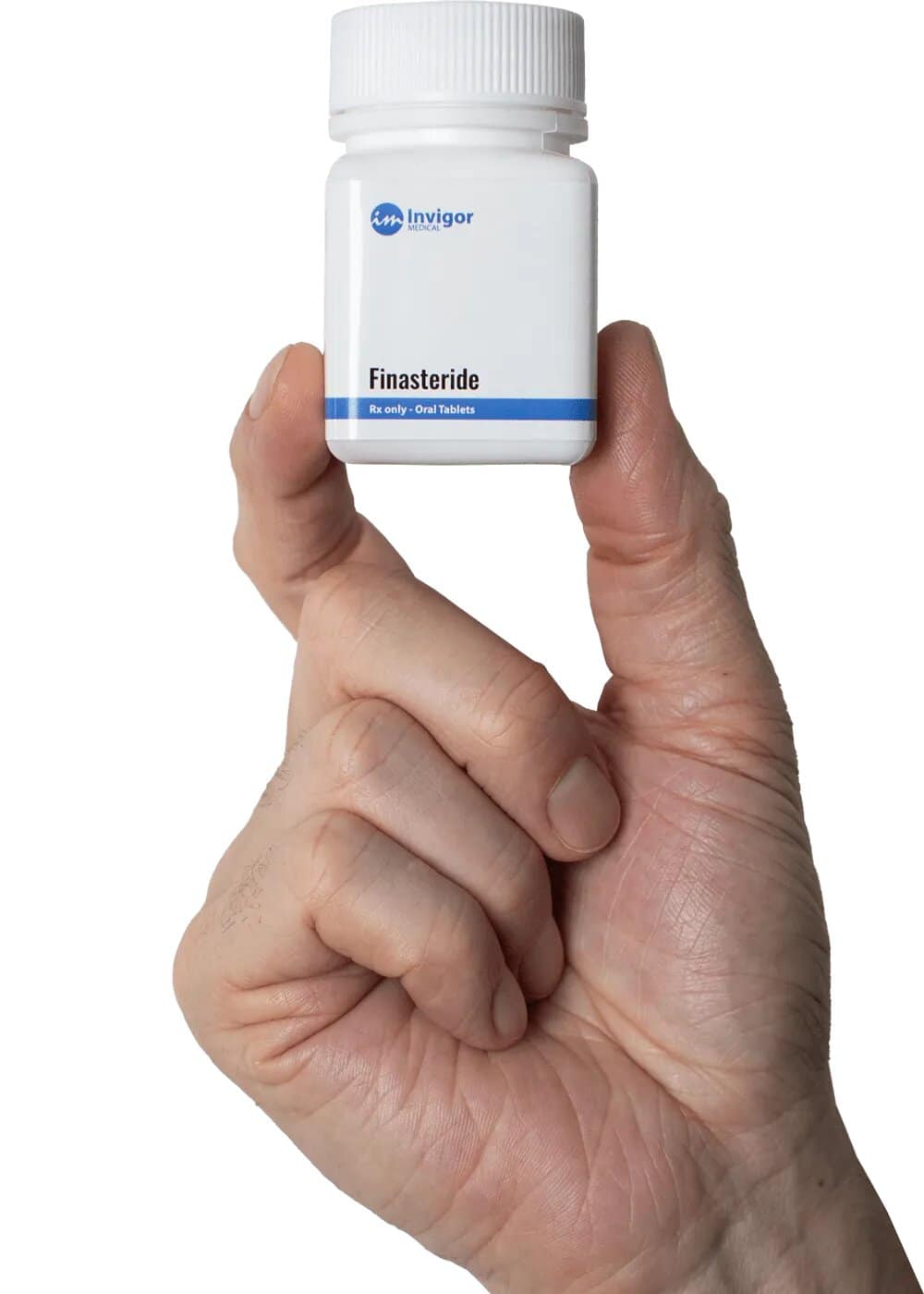






+
+
.7★


Finasteride is used to treat male-pattern hair loss, which is defined as a gradual thinning of the hair on the scalp, leading to a receding hairline or balding on the top of the head. Finasteride does not seem to help with hair loss at the temples.
Finasteride is in the class of medications called type II 5-alpha reductase inhibitors. By blocking 5-alpha reductase, finasteride blocks the conversion of testosterone to another male hormone, dihydrotestosterone (DHT). Decreasing the circulating DHT hormone can block its effect on hair follicles — which starts with miniaturizing the follicles, causing them to shrink and the hair to fall out.
Finasteride has the following potential side effects:
People who are pregnant or suspect that they might be pregnant should not take finasteride, as it can harm a developing fetus. Anyone with a known hypersensitivity to finasteride or any of its ingredients should not take finasteride.
Tell your doctor about all your medical history and prescription use. Men with the following conditions may not be candidates for finasteride:
Heavy drinking while taking finasteride may increase its side effects.
In clinical trials that enrolled 945 men with male-pattern hair loss, approximately 1.3% experienced erectile dysfunction after taking finasteride for one year. In comparison, 0.7% of men taking a placebo experienced erectile dysfunction during the same period.
Finasteride can take up to three months to improve hair growth and decrease hair loss. If you don’t see results after using finasteride for a year, contact your healthcare provider. Finasteride will only slow hair loss while the medication is being taken. Any hair that grew back while taking finasteride will typically be lost within a year after stopping the medication.
Men who want to keep their hair will need to continue taking finasteride long-term. A study evaluating the use of finasteride over a 10-year period found:
In a controlled clinical trial:
No, finasteride does not lower your testosterone levels.
Finasteride is a 5α-reductase enzyme Type 2 reductase inhibitor that inhibits the conversion of testosterone to dihydrotestosterone (DHT). Finasteride causes a 60% to 93% reduction in DHT and a 15% to 25% increase in testosterone levels.






*Prescription medications available only if prescribed by the healthcare provider after an online consultation. This is a compounded medication.